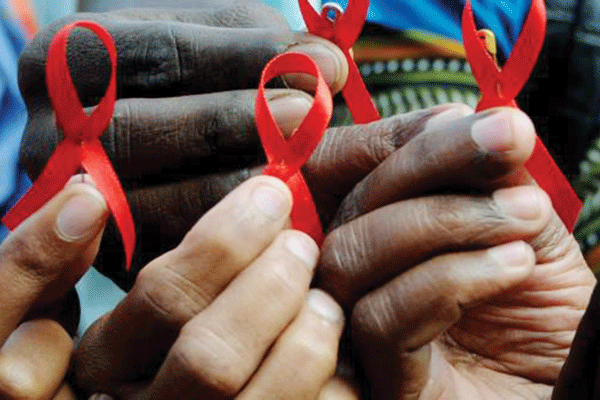
Forty-three-year-old Jacob Bhuutayi was among a handful of drivers whose trucks were parked at one of the many truck stops dotted across the town of Beitbridge who volunteered to do an HIV test, thanks to the service that was made possible by the National Aids Council (NAC) in the border town last week.
BY Moses Mugugunyeki
The Zimbabwe-born driver, who plies the South Africa-Democratic Republic of Congo route via the Beitbridge Border Post, said testing for HIV was the only way to know if he had the virus. He said HIV testing could also help put his mind at ease and reduce the anxiety of not knowing.
“It’s normal to feel worried about HIV, but testing can help put your mind at ease,” Bhuutayi told The Standard Style in Beitbridge last week.
“As truck drivers, we are at great risk of contracting sexual-transmitted infections (STIs), HIV included, because of the nature of our work. There is a lot of bureaucratic bungling at the border, which can take up to seven days to process with the authorities. This exposes us to risky behaviour and we end up sleeping with the ‘sisters of the night’,” he said.
“I am happy that we are having HIV testing and counselling services at our disposal. We cannot leave the trucks and go for HIV testing at clinics, but bringing the service to us will go a long way in addressing the challenges that we face.”
Rendering HIV testing and counselling services at truck stops, among other HIV hotspots in Beitbridge is part of a cocktail of strategies the national Aids body has adopted in Matabeleland South Province to tame HIV.
Matabeleland South province is one of the country’s HIV hotspots, with the highest HIV prevalence rate of about 21%, 7% higher than the national prevalence rate.
- Chamisa under fire over US$120K donation
- Mavhunga puts DeMbare into Chibuku quarterfinals
- Pension funds bet on Cabora Bassa oilfields
- Councils defy govt fire tender directive
Keep Reading
Acting NAC provincial manager for Matabeleland South, Prosper Mupa, said his organisation has stepped up efforts to fight HIV in the province.
“As you are aware, Matabeleland South Province is one of the HIV hotspots in the country. In our efforts to respond to such a high prevalence rate, we have come up with a cocktail of intervention programmes and it’s paying off,” Mupa said.
“Among our programmes, we have HIV testing and counselling services at police roadblocks during public holidays, moonlight testing, sports and musical galas as well as stop the bus campaign, among others.”
Mupa said the other intervention programme that was proving to be popular in the province was the roadside HIV testing and counselling service.
“Roadside interventions are being conducted during public holidays when most Zimbabweans working in South Africa and Botswana will be coming back home. We work with police and other stakeholders at roadblocks where we offer testing and counselling service to those that would be travelling back home,” he said.
The NAC provincial manager said their services were mainly targeted at truck drivers, commercial sex workers, gold panners and lately cattle farmers who are among key populations at high risk of HIV infection.
“Lately, we have discovered that sex workers are visiting cattle sales pens dotted around the province. You will realise that cattle farmers can take up to four days at the cattle sale pens, which puts them at risk. So, our intervention programmes have also embraced cattle farmers,” Mupa said.
NAC district coordinator for Gwanda Alice Moyo spoke of the sports and musical galas.
“It’s one way of gathering people for sports and entertainment while we offer HIV testing and counselling service, prevention of mother-to-child transmission service as well as cancer awareness. We have realised that people can only come in their numbers if we have such activities,” said Moyo, who was speaking during a NAC-organised sports gala at Nhwali Secondary School in Gwanda South.
“We are working with a lot of partners, including traditional leaders, the Ministry of Sports and Recreation as well as Health and Child Care ministry to conduct sports galas. It is paying dividends as evidenced by the increase in condom uptake and the number of people who have been tested so far,” she said.
Mupa said there was need to mobilise resources to deal with STIs, including HIV and Aids in Beitbridge.
“Beitbridge is the hot spot in Matabeleland South, during the second quarter the district recorded 1 023 cases of STIs which translate to 40% of the total recorded in the province. This means we have to double our efforts in Beitbridge, especially on the prevention aspect,” he said.
Lately, Zimbabwe has seen a reduction of HIV incidence and prevalence and the country has over the years increased access to HIV treatment. However, while the Aids epidemic is on the decline, the prevalence of HIV remains among the highest in the world.











